Picture this: you went out of your way to track down a vintage ashtray that would complete your husband’s collection for his birthday. You were on every message board, every Reddit thread, and followed every lead. You eventually got your hands on it and surprised your husband with it, and he was elated. When your birthday rolls around, he gives you a store-bought scarf. Doesn’t feel that great, does it? Reciprocity in relationships is more important than you think.
But what exactly is reciprocity in relationships? Is the “give and take” as simple as exchanging gifts with each other? What does it mean to reciprocate love? And what happens when you don’t?
Let’s address all those questions bubbling away in your head so that you can move one step closer to being the “perfect couple” you already advertise yourself to be on Instagram. To do so we talked to relationship and intimacy coach Utkarsh Khurana (MA Clinical Psychology, Ph.D. Scholar) who is a visiting faculty at Amity University and specializes in anxiety issues, negative beliefs, and individualism in a relationship, to name a few.
What Is Reciprocity In Relationships?
Table of Contents
To maintain a healthy relationship, be it between family members, acquaintances, or romantic partners, there needs to be a healthy give and take. Nobody likes the neighbor who borrows the lawn mower and yard tools without ever returning them. Reciprocity in relationships takes hold when both partners act in a way that is mutually beneficial for the relationship. It’s the act of establishing a healthy balance between giving and taking.
If you’re looking for reciprocal relationship examples, it’s when you stop chewing with your mouth open because your partner told you it bothers them. It’s when you return a favor, be it through an expression of love, a kind gesture, or simply by doing the dishes because your partner made dinner. It’s something you do for the benefit of your relationship. In such a dynamic, both parties feel safe in the space and depth of the feelings they share with each other since it’s very clear it’s not a one-sided relationship.
It’s important to note that the concept of reciprocity in relationships mustn’t be used for selfish means. The Bible says, “Do good, expect nothing in return.” Similarly, you can’t expect something in return because you started chewing with your mouth closed. Keeping a scorecard is a recipe for disaster. Utkarsh calls this inauthentic reciprocation “marshmallow reciprocation”, or an effort that is “sugar-coated” with no substance or sincerity.
Related Reading: Effort In A Relationship: What It Means And 15 Ways To Show It
Types Of Reciprocity In Relationship
Reciprocity after all is a balance of give and take between humans and is not just exclusive to romantic relationships. Cultural anthropologist, Marshall Sahlins in his Book Stone Age Economics identified three types of reciprocity that we discuss in detail in reference to reciprocity in romantic relationships:
1. Generalized reciprocity
This kind of reciprocity refers to doing something with no expectations of a direct return. Think of philanthropists, charities, or other altruistic ventures. Another example closer to home will be things that we do for our family, friends, parents, sometimes even a stranger, purely out of goodwill and a sense of trust that when you find yourself in need, the favor will be returned.
When relating it to examples of reciprocity in romantic relationships, you can see how generalized reciprocity would capture in it the things one partner does for the other daily, with no expectation of a direct or immediate return. This is also precisely why red flags in a relationship where the other partner does not return the love and effort with the same fervor get ignored.
2. Balanced reciprocity
This is a direct exchange of an action or good deed and it’s return within a specified time frame. Think about the act of gift giving in distant social circles. There is an implied expectation of receiving something similar from the person you’re giving a gift to.
Balanced reciprocity in romantic relationships happens when you throw your partner a birthday party or give them a gift subconsciously knowing that they will do the same or something similar for you on your birthday. Balanced reciprocity works on the “law of reciprocity”, which says that a good gesture will make you feel compelled to return the favor.
3. Negative reciprocity
In human societal relations, negative reciprocity is the taking of something and not feeling the need to return the favor. It should be easy to see it as “robbing” someone of their due. The aim here is maximum personal gain with impunity. In the case of romantic relationships, this is exactly the kind of exchange that experts term as unhealthy or abusive and advise against.
When you end up doing things for your partner out of goodwill, kindness, and love, and your partner ends up lapping it all up and forgetting to offer the same love, support, and appreciation to you, you have a negative reciprocity in relationships example in your own home.

Why Is Reciprocity In Relationships Important?
The reciprocity in relationships psychology is closely linked to that of a positive relationship. When a balance between give and take doesn’t exist in a dynamic, it runs the risk of becoming a case of romantic manipulation and turning into a one-sided and dissatisfying relationship. Think about it; if there’s only one person in a dynamic who sacrifices and acts as the giver, they’re eventually going to feel burned out. They may feel that their partner doesn’t feel the same way about them, which will bring the whole thing tumbling down.
“Every time he has a work commitment, he cancels our plans like they never existed in the first place. I shift around my work meetings, my plans with friends and family just so I can spend a little time with him. When he disregards the effort I put in, it seems like he doesn’t care much,” says Josephine, talking about her partner, Jared.
“I don’t think we’ve ever emotional reciprocity in the relationships. I’ve never felt secure, largely because of how he never shows he cares,” she adds highlighting the importance of reciprocity in relationships. In its absence, animosity lingers in the air, eventually tarnishing their relationship. Saying that “reciprocation can be emotional, physical verbal, and non-verbal”, Utkarsh lists the following as the primary reasons why reciprocity in relationships is important:
- Feeling seen and heard: Utkarsh says, “When a partner reciprocates, the other feels that their efforts were acknowledged.” Negative reciprocity in a relationship does the exact opposite. It leads to neglect
- Strengthens the bond: “Reciprocity makes both partners feel they are in the same boat. If not on the same boat, at least in the same sea,” he says. This spirit of oneness strengthens a couple’s bond
- Presence of mutual respect: In effect, reciprocity in relationships also highlights the presence of mutual respect between partners. When both partners think of each other as equals, they might establish a healthy give and take without even realizing it
- Not letting one feel used or taken for granted: When there’s a lack of reciprocity in relationships, it can even highlight bigger problems, like one partner taking the other for granted. They may not feel the need to “return the favor” since they believe their partner will stick around regardless
Now that you know what it is and how important it is, you’re probably trying to draw parallels. Let’s take a look at how you can build on this ever-important fundamental of any dynamic, lest yours falls prey to inconsideration.
How To Build Reciprocity In Relationships
“I’m the only one who makes sacrifices in this relationship, you never do anything for me!” If you’ve heard or said something similar in your relationship, it’s probably because one of you feels neglected in your dynamic. The lack of reciprocity in relationships can eat away at it without you even realizing what’s going on.
It can become a trigger for constant fights and arguments because one of you feels invalidated and doesn’t know how to communicate it. To make sure you both move one step closer toward a harmonious relationship, let’s take a look at how you can ditch the scorecard, but still feel secure with what you have with your partner.
1. Develop mutual respect
In a union of equals, nasty power struggles in relationships, and taking each other for granted doesn’t exist. One doesn’t feel any sense of superiority, which automatically means they don’t feel entitled to any special treatment without putting in the same amount of effort. Forget about reciprocity in relationships, a lack of mutual respect in itself represents an array of issues that must be addressed immediately.
If you often feel neglected, hurt, and invalidated, your relationship might suffer due to this. Utkarsh says, “When a person feels respected by their partner, it conveys to them that their significant other acknowledges their “self”. As a result, they feel safe in the relationship.” Mutual respect and reciprocity go hand in hand. Once both partners treat each other as equals, you’re bound to value the relationship a bit more too.
Related Reading: Lack Of Affection And Intimacy In A Relationship — 9 Ways It Affects You
2. Support is a two-way street
Say you’ve just had a major fight about a recurring issue, and your partner has an upcoming meeting they’ve been anxious about for the longest time. Can they count on you to support them regardless of how loud you may have screamed at each other the previous night?
Emotional reciprocity in relationships develops when there’s near-certain guarantee of support. Of course, things may get rough and you may stonewall each other for a while. It’d be weirder if you didn’t. But even so, that doesn’t mean you stop supporting your partner every step of the way.
It doesn’t matter what you fought about or how rough things are currently, if your partner needs help, you should be the first person on their speed dial. Establishing this doesn’t come through words of affirmation, it comes through literally being there for the person you love – over and over again.

3. Unwavering trust is a necessity
Do you question your partner’s loyalty every time they require some personal space or every time they’re out with friends? If they don’t contact you for a day on a work trip, is the worst-case scenario running through your head or are you sipping on your martini, enjoying your alone time? If your palms are sweaty each time your partner goes AWOL for a while, you probably need to work on building trust in your relationship.
When you’ve reached a place where you do not question your partner’s commitment and loyalty, you feel more secure with what you have. This sense of security helps foster reciprocity in relationships. Since you’re no longer fixating over all possible ways your partner can hurt you, you can channel your energies toward making them feel loved and cherished.
4. Reassurance – lots of it
What does it mean to reciprocate love? When you show your SO that you appreciate the little gestures they make with little gestures of your own, you feel just a little bit more secure with what you have. You surprise them with their favorite cheesecake on your way back from work, they do your share of the chores for a night.
A surprise hug, a small gift, or just a few work meetings canceled to be able to spend time with the one you love; they all say the same thing: “I love and appreciate you, let me show you that through a few kind gestures.” Ways of showing affection in a relationship can be grandiose or small gestures that make the one you love smile – like bringing them coffee in bed when they’re unable to open their eyes on a lazy Sunday morning. Or ordering their favorite Chinese before they even ask, after a long day at work.
Related Reading: 12 Simple Tips To Build Healthy Relationships
5. Communicate openly and honestly
Without even realizing it, the movies we’ve been watching have been giving us reciprocal relationship examples all along. Every single couples’ therapy session in a movie goes like this: “When you do that, it makes me feel like this.” Granted, it’s an oversimplified attempt at displaying what couples therapy looks like, but it’s still something that makes couples take one step closer toward developing reciprocity in relationships.
Only by telling your partner what you feel and what you expect can you help them understand what benefits the relationship. If you’re unable to communicate openly with each other due to any kind of fear or apprehension, then that’s an issue you must address immediately. If you feel you can’t talk to each other without inciting an argument, perhaps seeking help from an unbiased, professional third party such as a couples’ therapist can be beneficial.
If you’re looking for professional help to make sure your relationship moves one step closer toward a harmonious union, Bonobology’s panel of experienced therapists is only a click away.
6. Personal space facilitates reciprocity in relationships
Personal space in a relationship can hold it together. Spending every waking moment together is bound to make partners get sick of each other, snapping at each other without even realizing what’s causing the unrest and tensions. Though it may seem contradictory, the reciprocity in relationships psychology tells us that by giving each other space and respecting each other’s boundaries, you can instill a sense of respect and reciprocity.
Utkarsh says, “Space gives a person the opportunity to introspect about what they are feeling. With that introspection comes the opportunity to offer authentic sincere reciprocation. The conversation with oneself or intra-personal reciprocation allows for interpersonal reciprocation.”
Key Pointers
- Reciprocity in relationships is a healthy balance between giving and taking. It’s when you regularly feel the urge to and are able to “return the favor” of love, effort, time, respect, and attention
- The three kinds of reciprocity are generalized reciprocity, which is much like altruism, i.e do good and move on with an unconscious trust that good will be done to you; balanced reciprocity, which is an equal give and take in a specified time frame; and negative reciprocity, where one person keeps on taking without returning the favor
- Reciprocity in relationships helps partners feel seen and heard, their efforts acknowledged. It strengthens their bond, builds trust, and ensures no one feels used
- Some ways to build reciprocity in relationships are to develop mutual respect, support to each other, strengthen trust, offer reassurances, and acknowledge your partner’s efforts
- Other equally important steps are to communicate openly and honestly and to allow each other personal space while respecting each other’s boundaries
It’s not really something we think about, but reciprocity in a relationship basically means establishing a healthy dynamic, devoid of, “All I do is sacrifice for you, why can’t you ever do something for me?”. If you’ve often kept score of who does what for the other, perhaps this article will do you more good than you know.
But now that you know what it takes for both of you to feel validated and reassured, you can hopefully move one step closer to having that perfect relationship we all crave. Sure, there will still be ups and downs, but at least you’ll know you’re always there for each other – one kind gesture at a time.
FAQs
Not at all. It is not only fair but also a universal expectation in relationships. Social psychologists refer to it as the “law of reciprocity” in a research paper where they say that when a good is done to you, there is a psychological urge to return the favor.
Love not being reciprocated in situations where one person has admitted their love for another but the other person doesn’t feel the same way is different from reciprocity in an existing relationship. In case your love is not reciprocated and the person you love says that they do not feel the same way, there isn’t anything that you can do. You must respectfully accept their feelings and figure out a way to detach yourself and move on for the sake of your mental and emotional health.
When talking about the reciprocation of true love, the context is different from reciprocity in a relationship. There is no guarantee that the person you love with all your heart will feel the same way for you. You must find a way to love them from a distance and move on with your life.
Your contribution does not constitute a charitable donation. It will allow Bonobology to continue bringing you new and up-to-date information in our pursuit of helping anyone in the world to learn how to do anything.




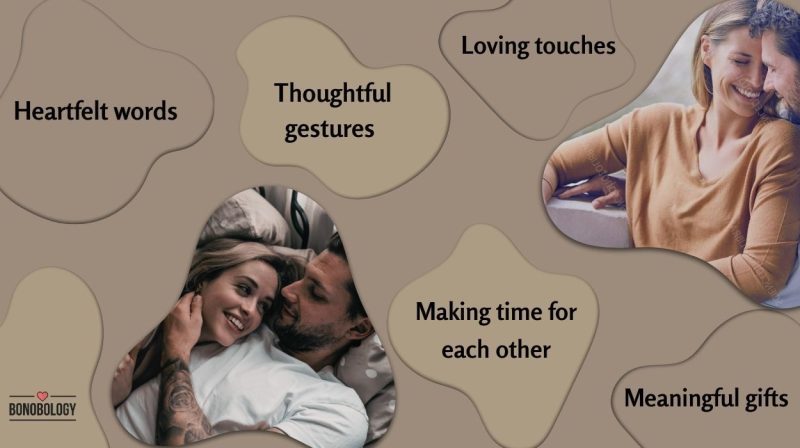
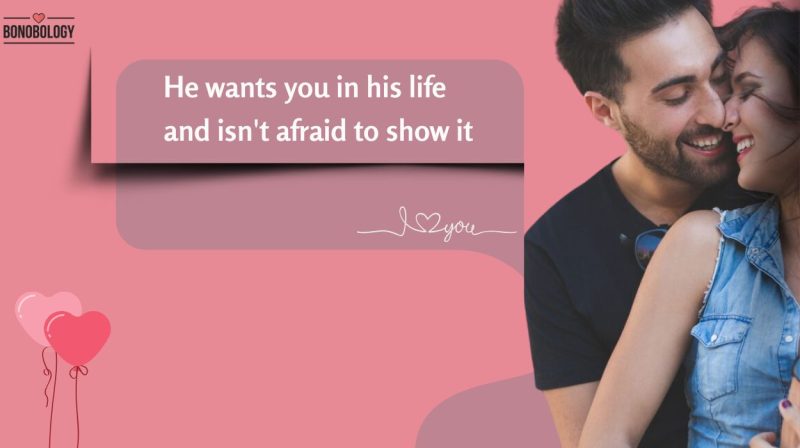
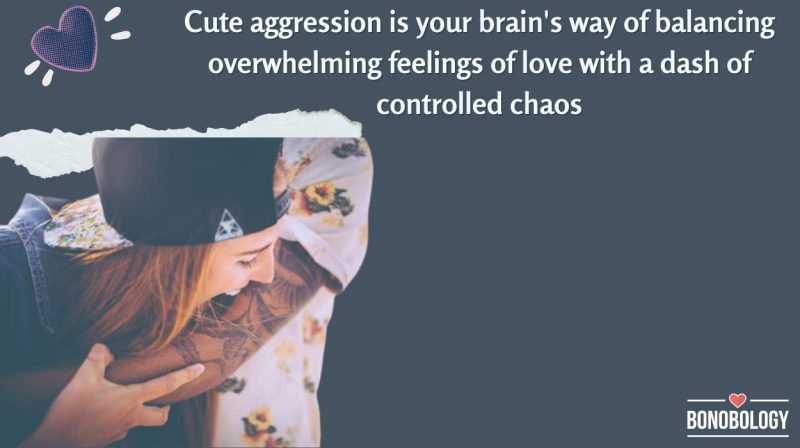






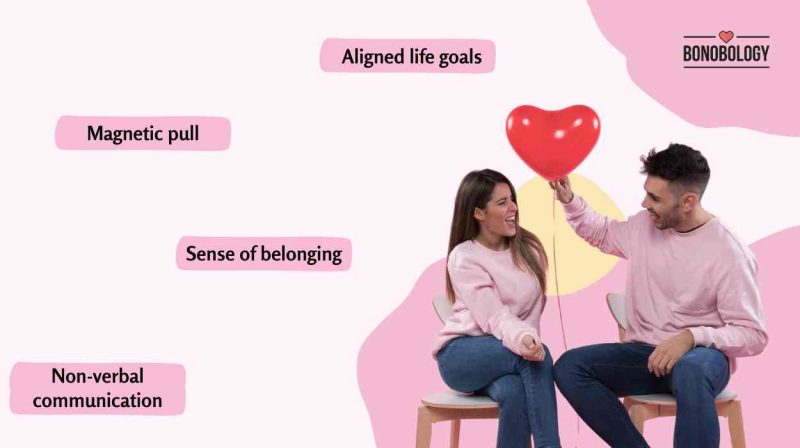





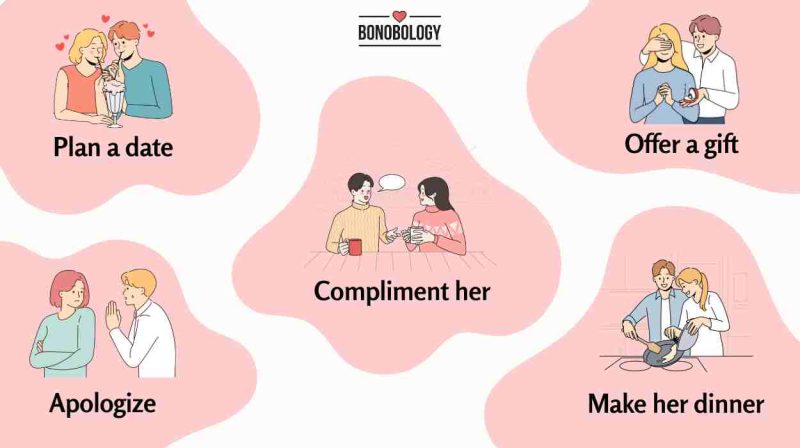



Featured
Looking For Words To Make Her Trust You? 300 Ideas
What Is Affection In A Relationship And How To Show It
21 Undeniable Signs A Guy Is Claiming You
Why Do I Want To Bite My Boyfriend? The Psychology Behind It
Ungodly Soul Ties Keeping You Stuck? Learn How To Break Them
How To Feel Confident During Your First Sex Experience
200+ Creative Responses To “I Love You”
15 Things to Consider Before Making a Relationship Official
How To Make Him Obsessed With You: 21 Smart Tips
10 Best Apps for Long-Distance Relationships
21 Signs You Have An Unexplainable Connection With Someone
150 Words Of Affirmation Examples To Cement Your Bond
7 Obvious Signs He Likes You, As Per A Relationship Expert
How To Manifest Someone To Be Obsessed With You
100 Romantic Birthday Wishes To Make Your SO’s Day Extra Special
200 Romantic Text Messages That Will Make Her Want You Badly
How To Make It Up To Your Girlfriend: 20 Effective Ideas
Emoji Love Texts: 15 Creative Ways to Express Your Feelings
30 Romantic Emoji Meanings — Decoded for You
100 Things for Couples to Do Together